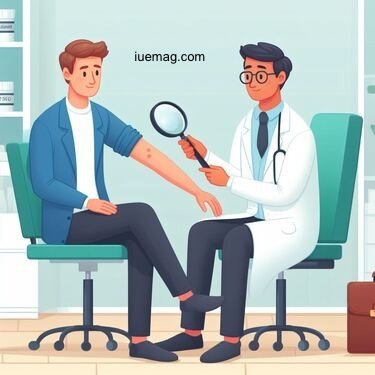

The Importance Of Skin Check Gold Coast: Protecting Your Health
 The Gold Coast offers outdoor enthusiasts an idyllic lifestyle, but that comes with increased risks from sun exposure, such as skin cancer. Regular skin check Gold Coast from trained professionals like Sundoctors are not just medical necessities; they play a pivotal role in protecting health.
The Gold Coast offers outdoor enthusiasts an idyllic lifestyle, but that comes with increased risks from sun exposure, such as skin cancer. Regular skin check Gold Coast from trained professionals like Sundoctors are not just medical necessities; they play a pivotal role in protecting health. In this article, we explore their significance as an effective preventative measure and offer tips for maintaining healthy skin in this tropical area.
Australia and its Gold Coast have long been noted for having high rates of skin cancer, with over 15,000 Australians diagnosed annually according to Cancer Council Australia. A combination of outdoor living and abundant sunshine increases exposure to harmful UV radiation that damages skin cells. According to Cancer Council Australia, Australia boasts one of the highest incidences of skin cancer worldwide with one of the highest prevalences.
Melanoma, the deadliest form of skin cancer, is especially prevalent on the Gold Coast due to its sunny climate and outdoor activities. When diagnosed early, however, melanoma has an excellent cure rate. Regular skin checks can significantly aid early diagnosis and treatment.
Maintain Regular Skin Check Ups as part of a Healthy lifestyle
Early Detection Saves Lives: Skin checks play a pivotal role in the early identification of skin cancers and subsequent treatments that make treatment more successful, increasing chances of complete cure and saving lives.
Skin Cancer Awareness: By getting regular skin checks, you become more aware of any changes that might be taking place with your skin and any changes that might emerge over time. This heightened awareness can alert you quickly if any suspicious moles or abnormalities emerge and require medical intervention immediately.
Reduce Health Care Costs: Treating advanced skin cancer can be more expensive and invasive than earlier interventions, but regular skin checks can help lessen the financial strain associated with its treatment.
What to Expect During a Skin Check
Now that we understand the significance of regular skin checks, let's go over what to expect during an examination:
Consultation: Your skin check will begin with a consultation with a dermatologist or trained healthcare provider, who will ask about your medical history, any family histories of skin cancer, and any specific concerns that you have about yourself and/or others.
Exam: For this step, it will be necessary for you to undress down to your undergarment; your dermatologist will then conduct a comprehensive skin examination, covering every inch of skin from head to toe - even areas that don't typically experience UV radiation exposure.
Dermoscopy: Dermoscopy is a non-invasive technique that allows dermatologists to closely inspect any suspicious moles or lesions on a patient's skin using a handheld instrument called a "dermatoscope," equipped with magnification and lighting capabilities.
Biopsy (if necessary): If during their examination the dermatologist identifies any suspicious moles or lesions, they may recommend conducting a biopsy to take a sample for laboratory analysis to assess for skin cancer. A small piece of tissue will be taken and sent off for lab analysis to confirm whether skin cancer exists.
Advice and Recommendations: Based on their examination findings, dermatologists will offer recommendations regarding sun protection, skincare products, and follow-up appointments. In some instances, they may even suggest the removal of suspicious moles or lesions that appear precancerous or cancerous.
Conclusion Skin checks on the Gold Coast are more than just medically necessary; they're an integral component of protecting your health. Given its high sun exposure levels, there's an elevated risk of skin cancer here; early detection and preventive measures could make a big difference in treatment success rates. By getting regular checks, being aware of changes to your skin, and practicing sun safety behaviors such as wearing UVA protection sunscreen while enjoying this beautiful coastal destination while staying sun safe - your skin is your largest organ and should be treated accordingly.
Copyrights © 2025 Inspiration Unlimited - iU - Online Global Positivity Media
Any facts, figures or references stated here are made by the author & don't reflect the endorsement of iU at all times unless otherwise drafted by official staff at iU. A part [small/large] could be AI generated content at times and it's inevitable today. If you have a feedback particularly with regards to that, feel free to let us know. This article was first published here on 4th October 2023.
Overthinking? Uninspired? Brain Fogged?
Let's Reset That! Try iU's Positivity Chat NOW!

All chats are end-to-end encrypted by WhatsApp and won't be shared anywhere [won't be stored either].


